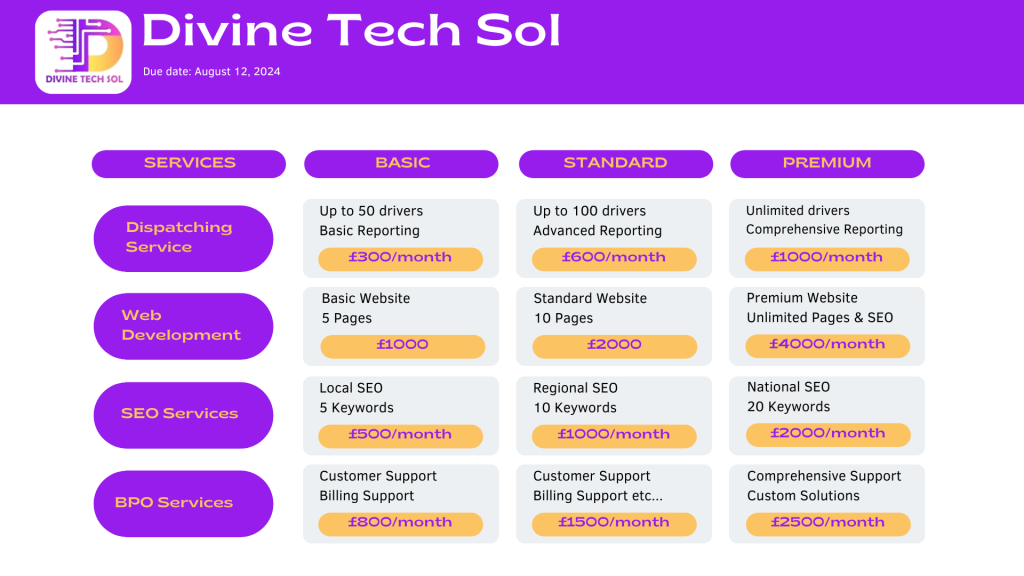Launching a new website is an exciting milestone for any business. However, without a solid digital marketing strategy, your new website may struggle to gain traction. To ensure a successful launch, it’s essential to plan and execute an effective marketing strategy. In this blog post, we’ll explore how to build a digital marketing strategy for your new website launch, combining relevant keywords to maximize your reach and impact.
Why You Need a Digital Marketing Strategy for Your New Website Launch
A well-planned digital marketing strategy can make or break your new website launch. It helps you attract visitors, engage your audience, and drive conversions. Here are some key reasons why a digital marketing strategy is crucial:
- Visibility: A comprehensive strategy ensures your website is visible to your target audience.
- Brand Awareness: It helps in building brand awareness and establishing your online presence.
- Traffic Generation: Effective marketing drives traffic to your site, leading to potential customers.
- Competitive Edge: A strategic approach gives you a competitive edge in the crowded digital landscape.
- Measurable Results: You can track and measure the effectiveness of your campaigns, making necessary adjustments for better results.

Steps to Build a Digital Marketing Strategy for Your New Website Launch
1. Set Clear Goals
Before diving into digital marketing tactics, define your goals. What do you want to achieve with your new website launch? Common goals include:
- Increasing brand awareness
- Driving organic traffic
- Generating leads or sales
- Building a subscriber list
- Enhancing user engagement
2. Conduct Market Research
Understanding your target audience is crucial. Conduct market research to identify:
- Demographics: Age, gender, location, income level, etc.
- Psychographics: Interests, values, lifestyle, etc.
- Pain Points: Challenges and problems your audience faces.
- Competitors: Analyze competitors’ websites and marketing strategies.
3. Optimize Your Website for SEO
Search Engine Optimization (SEO) is vital for driving organic traffic. Here’s how to optimize your new website for SEO:
- Keyword Research: Identify relevant keywords that your target audience is searching for. Use tools like Google Keyword Planner, SEMrush, or Ahrefs.
- On-Page SEO: Optimize your website’s content, meta tags, headers, and images with target keywords.
- Technical SEO: Ensure your site is fast, mobile-friendly, and has a clean URL structure. Implement SSL certificates for security.
- Content Creation: Produce high-quality, engaging content that addresses your audience’s needs and incorporates relevant keywords.
4. Create a Website Launch Checklist
A comprehensive website launch checklist ensures that no critical aspect is overlooked. Here are some key items to include:
- SEO Audit: Conduct an SEO audit to identify and fix any issues.
- Content Review: Ensure all content is optimized and error-free.
- User Testing: Test your website’s functionality, usability, and responsiveness.
- Analytics Setup: Set up Google Analytics and other tracking tools to monitor performance.
- Backup Plan: Have a backup plan in place to handle any issues during the launch.

5. Develop a Content Marketing Plan
Content marketing is a powerful tool for attracting and engaging your audience. Here’s how to create a content marketing plan for your website launch:
- Blog Posts: Write informative and SEO-optimized blog posts on topics relevant to your audience.
- Social Media Content: Share engaging content on social media platforms to drive traffic to your site.
- Email Marketing: Build an email list and send newsletters to keep your audience informed and engaged.
- Visual Content: Use images, infographics, and videos to make your content more appealing.
6. Implement Social Media Marketing
Social media is a great way to promote your new website. Here’s how to leverage social media marketing:
- Platform Selection: Choose the platforms where your target audience is most active.
- Content Strategy: Develop a content strategy that includes a mix of promotional, informational, and engaging content.
- Engagement: Interact with your audience by responding to comments, messages, and mentions.
- Paid Ads: Use paid social media ads to reach a wider audience and drive traffic to your site.
7. Leverage Email Marketing
Email marketing is an effective way to nurture leads and keep your audience informed about your new website. Here’s how to do it:
- Build an Email List: Use lead magnets such as eBooks, checklists, or free trials to encourage sign-ups.
- Email Campaigns: Create email campaigns to announce your website launch, share updates, and promote your content.
- Personalization: Personalize your emails to make them more relevant and engaging for your audience.
8. Utilize PPC Advertising
Pay-per-click (PPC) advertising can give your new website an immediate boost in visibility. Here’s how to get started:
- Keyword Research: Identify high-intent keywords to target in your PPC campaigns.
- Ad Copy: Write compelling ad copy that highlights the benefits of your website.
- Landing Pages: Create optimized landing pages that match your ad copy and keywords.
- Budget Management: Set a budget and monitor your campaigns to ensure a good return on investment (ROI).
9. Monitor and Analyze Performance
Tracking and analyzing your digital marketing efforts is crucial for continuous improvement. Here’s what to monitor:
- Website Traffic: Use Google Analytics to track traffic sources, user behavior, and conversion rates.
- SEO Performance: Monitor keyword rankings, organic traffic, and backlinks.
- Social Media Metrics: Track engagement, reach, and conversions from social media.
- Email Metrics: Analyze open rates, click-through rates, and conversions from email campaigns.
- PPC Performance: Monitor ad impressions, clicks, and conversions to optimize your campaigns.
10. Adjust and Optimize
Based on your analysis, make necessary adjustments to your strategy. Continuous optimization ensures that your digital marketing efforts remain effective and aligned with your goals.
Conclusion
Building a digital marketing strategy for your new website launch is a multi-faceted process that requires careful planning and execution. By setting clear goals, conducting market research, optimizing your website for SEO, and leveraging various marketing channels, you can ensure a successful launch that drives traffic, engagement, and conversions.
If you need professional assistance with your digital marketing strategy, consider partnering with Divine Tech Sol. As experts in Digital Marketing, SEO, Web Design, and Development, Divine Tech Sol can help you create and execute a winning strategy for your new website launch. Visit divintechsol.com to learn more about their services.
See Pricing From Divine Tech Sol

By following the steps outlined in this blog post, you can build a comprehensive and effective digital marketing strategy that maximizes the impact of your new website launch. Good luck!


